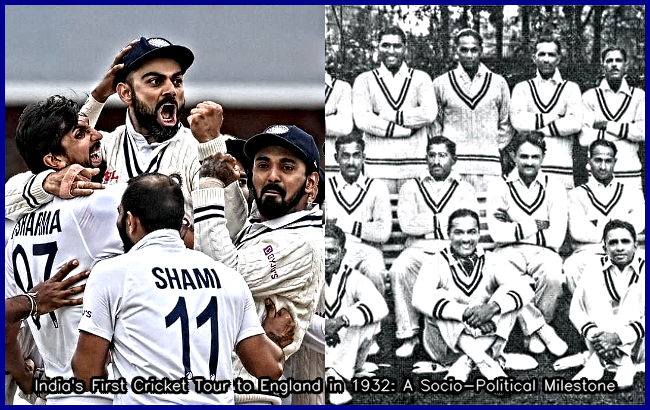India’s First Cricket Tour to England in 1932: A Socio-Political Milestone
Cricket is more than just a sport in India. It is a passion, a way of life, and a symbol of national pride. The game has a rich history in the country, and one of the most significant events in that history is India’s first cricket tour to England in 1932. This tour was not just about cricket; it was a socio-political milestone that marked the beginning of a new era in Indian sports.
The Indian team that toured England in 1932 was composed entirely of Indians, which was a significant achievement in itself. At that time, cricket was dominated by the British, and it was rare for a team from a colonized country to tour England. The Indian team was a diverse group of players who belonged to different castes and spoke different languages. The team contained six Hindus, five Muslims, four Parsees, and two Sikhs, and the players had to avoid certain foods and alcohol due to religious beliefs.
The tour was not without its challenges. The Indian team was unfancied and was not expected to perform well against the English. The players had to face racial discrimination and were often subjected to taunts and insults from the English crowds. However, the Indian team was determined to prove their worth and make a mark on the international cricket scene.
The first Test match of the tour was played at Lord’s, the home of cricket. The Indian team shocked the English by reducing the Marylebone Cricket Club (MCC) to a dismal 19-3. The Indian bowlers, led by Mohammad Nissar, bowled with pace and accuracy, and the English batsmen struggled to cope with the Indian attack. The Indian team went on to win the match by 158 runs, which was a remarkable achievement.
The victory at Lord’s was not just a cricketing triumph; it was a socio-political milestone. The Indian team had shown that they were capable of competing with the best in the world, and they had done so on their own terms. The team had defied the odds and had overcome racial discrimination and cultural barriers to achieve success.
The tour had a significant impact on Indian cricket and Indian society as a whole. It inspired a generation of young cricketers and gave them the confidence to believe in themselves and their abilities. It also helped to break down barriers between different communities in India and promoted unity and harmony.
In conclusion, India’s first cricket tour to England in 1932 was a socio-political milestone that marked the beginning of a new era in Indian sports. The tour was not just about cricket; it was about breaking down barriers and promoting unity and harmony. The Indian team’s victory at Lord’s was a remarkable achievement that inspired a generation of young cricketers and helped to shape the future of Indian cricket.

